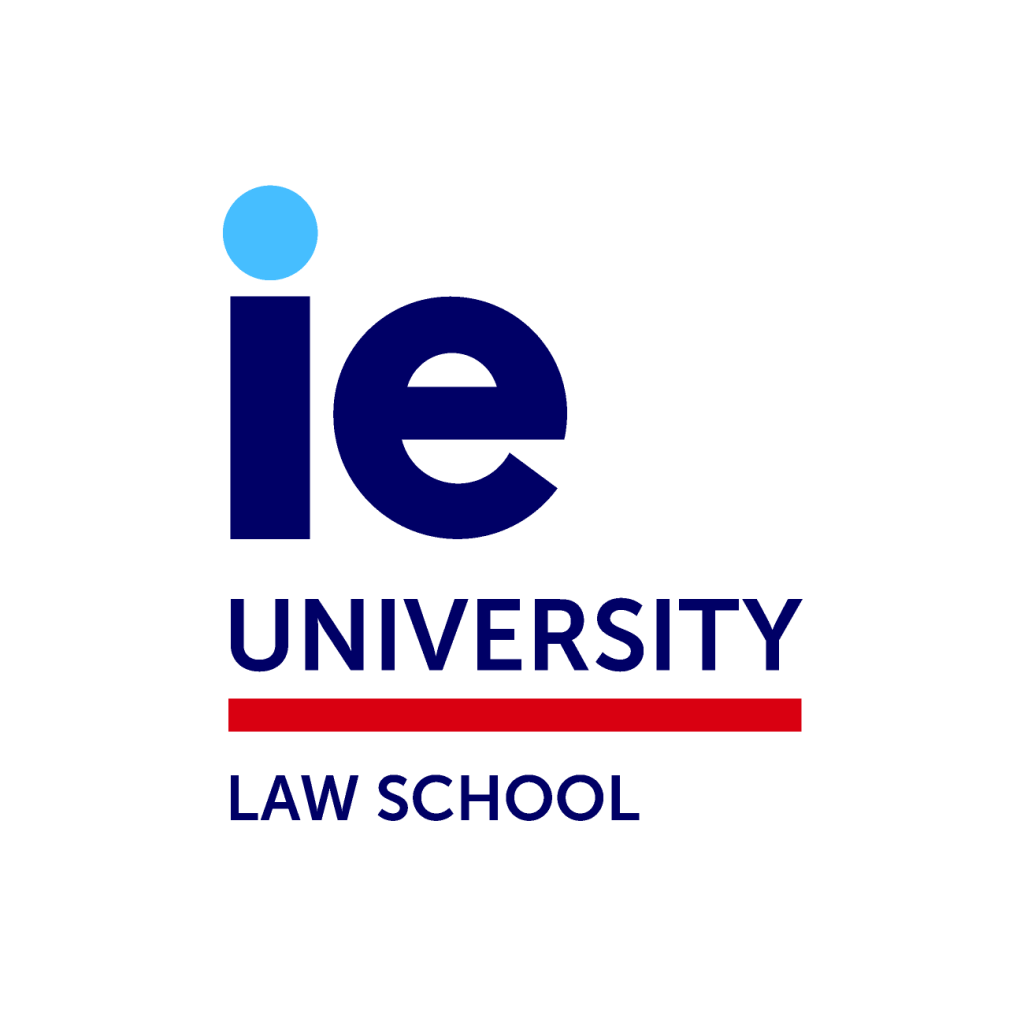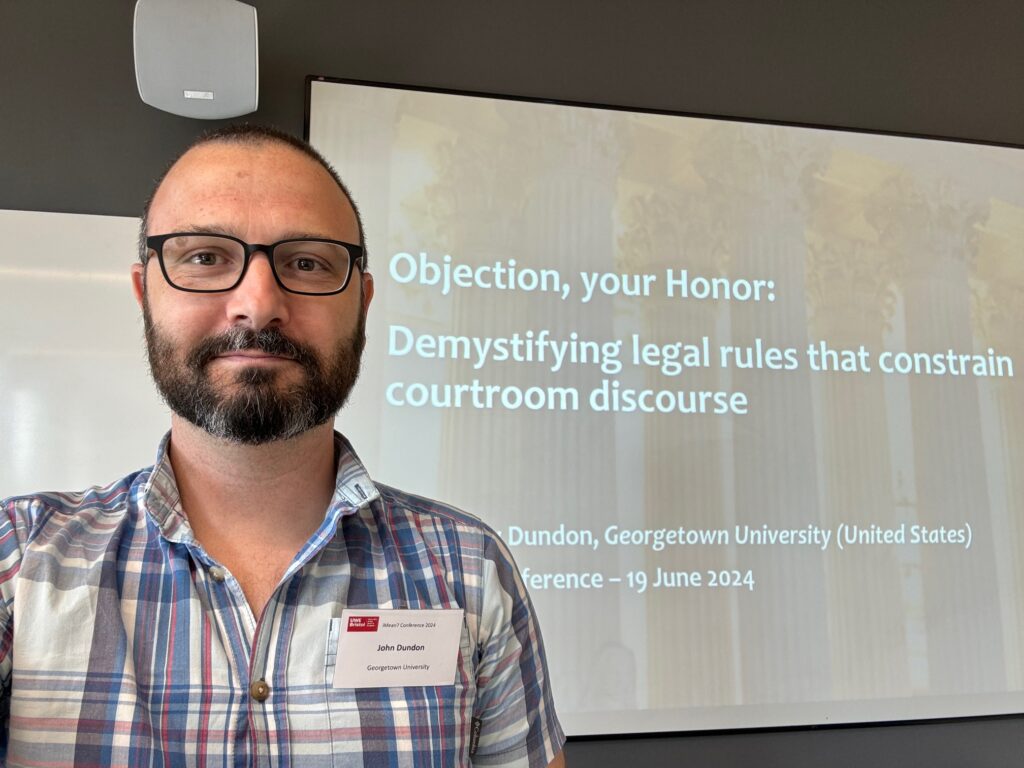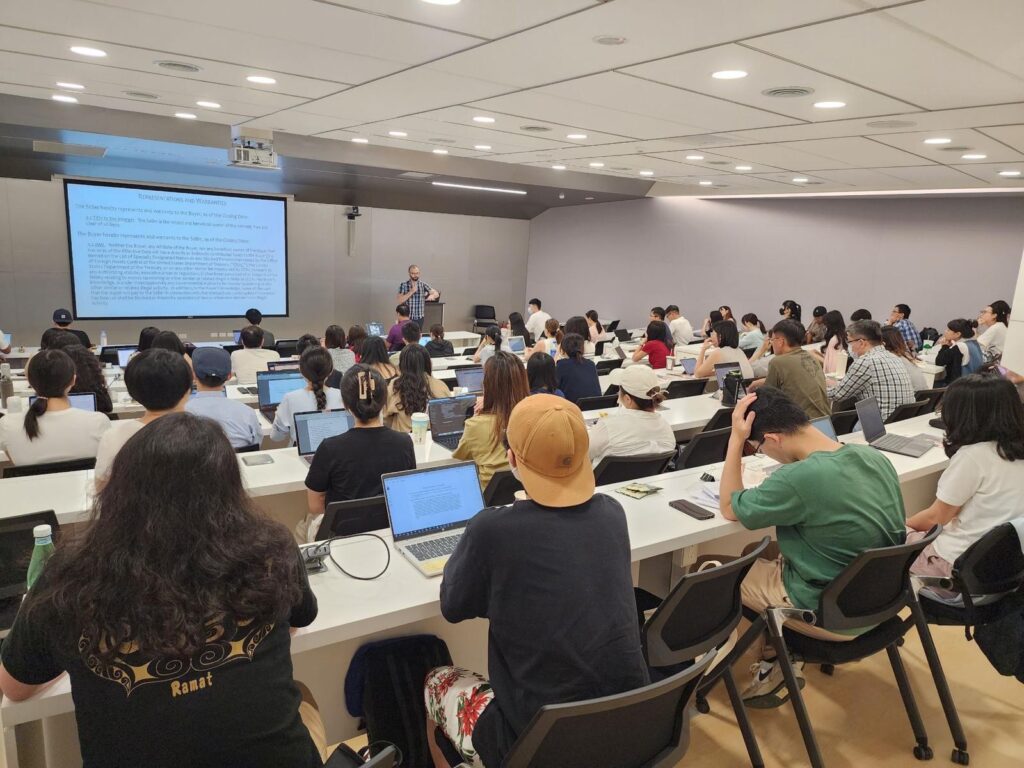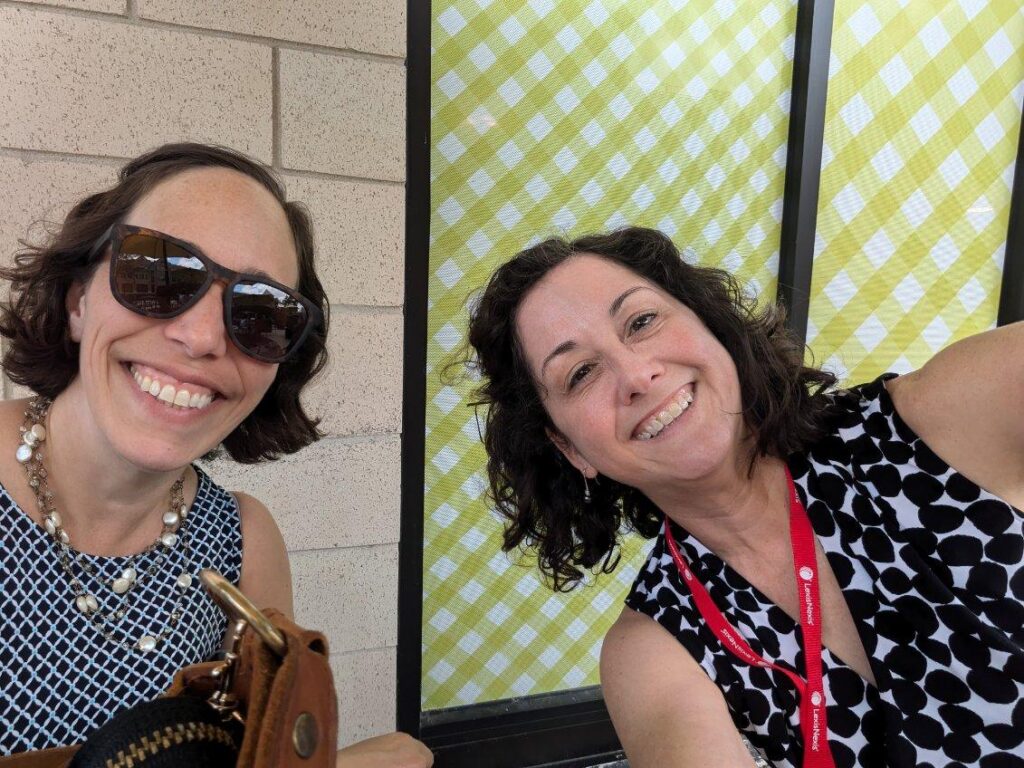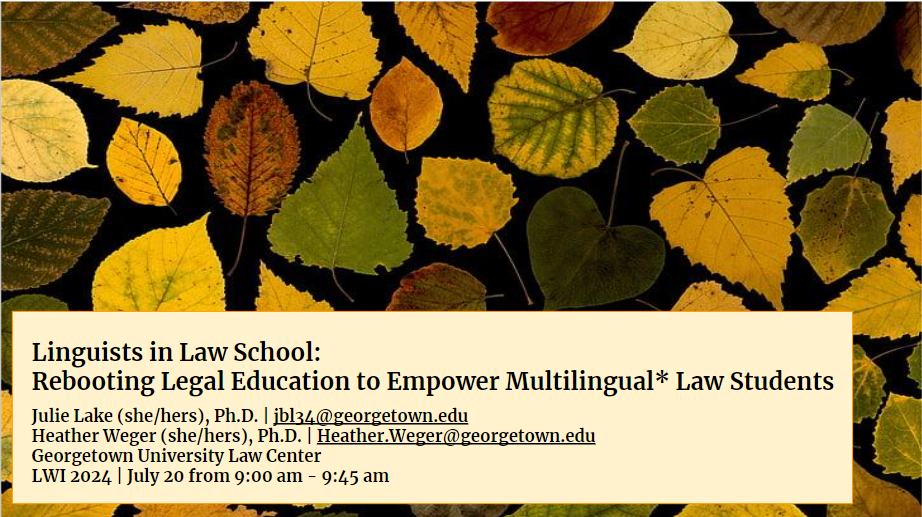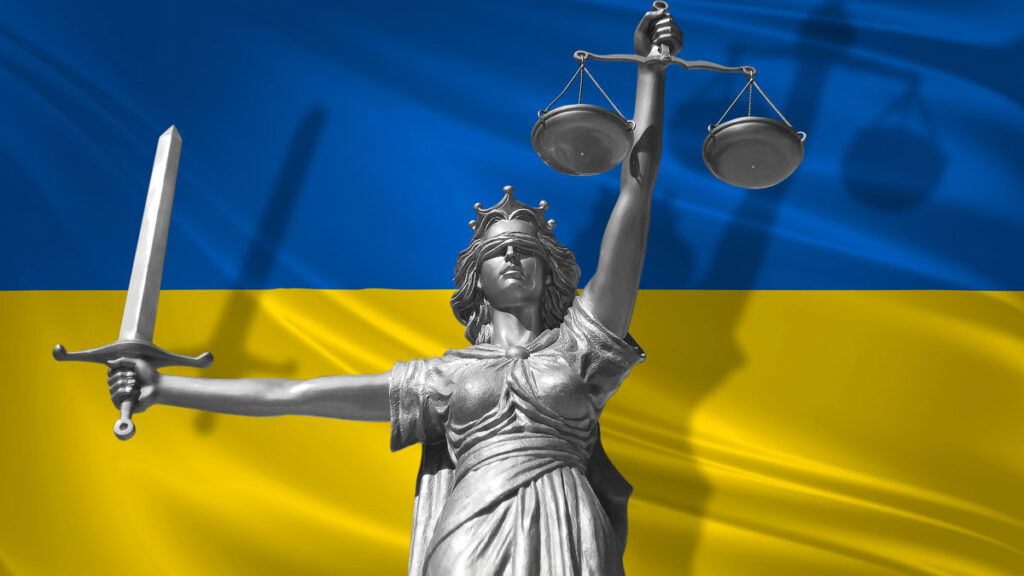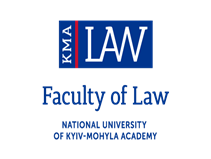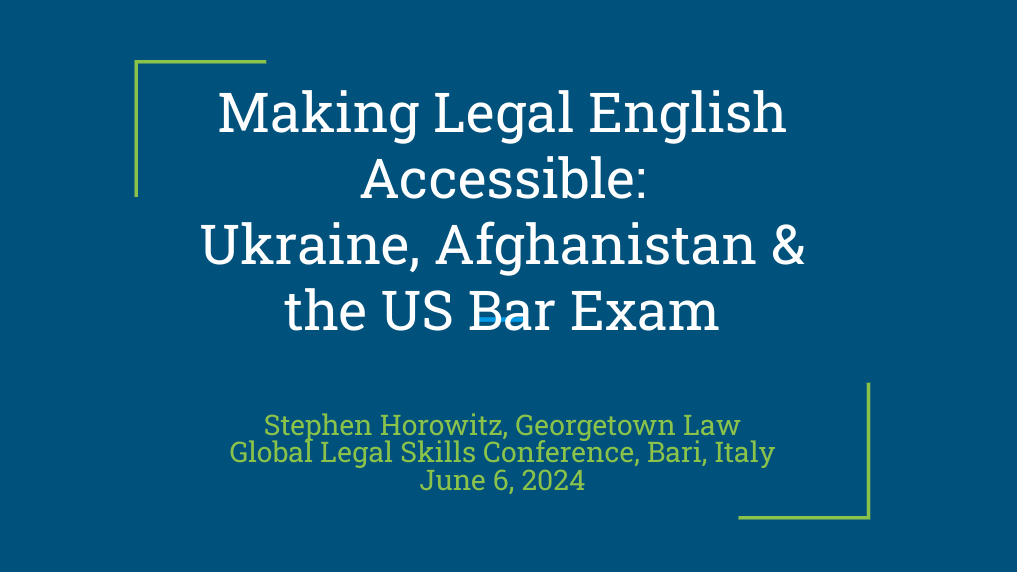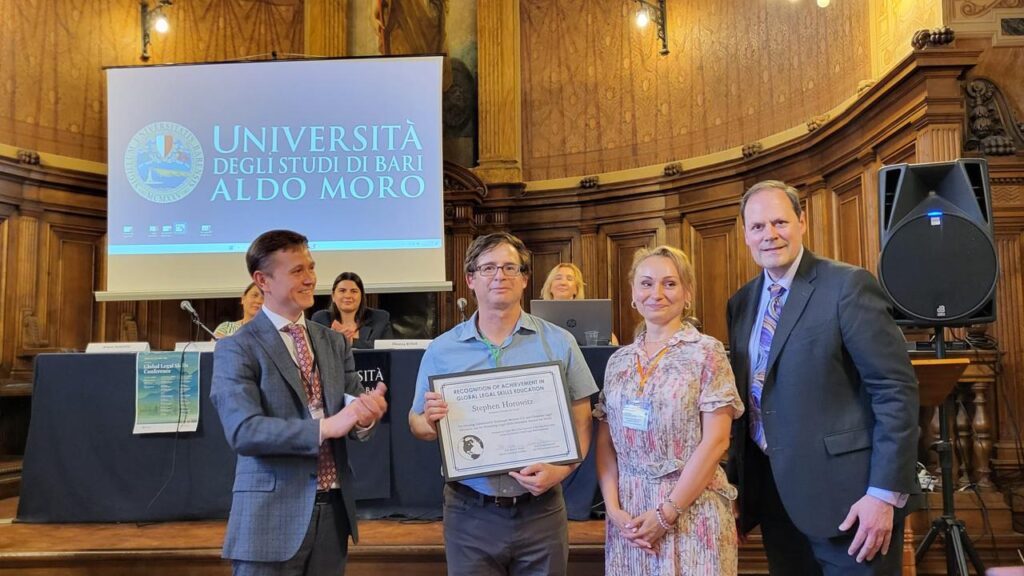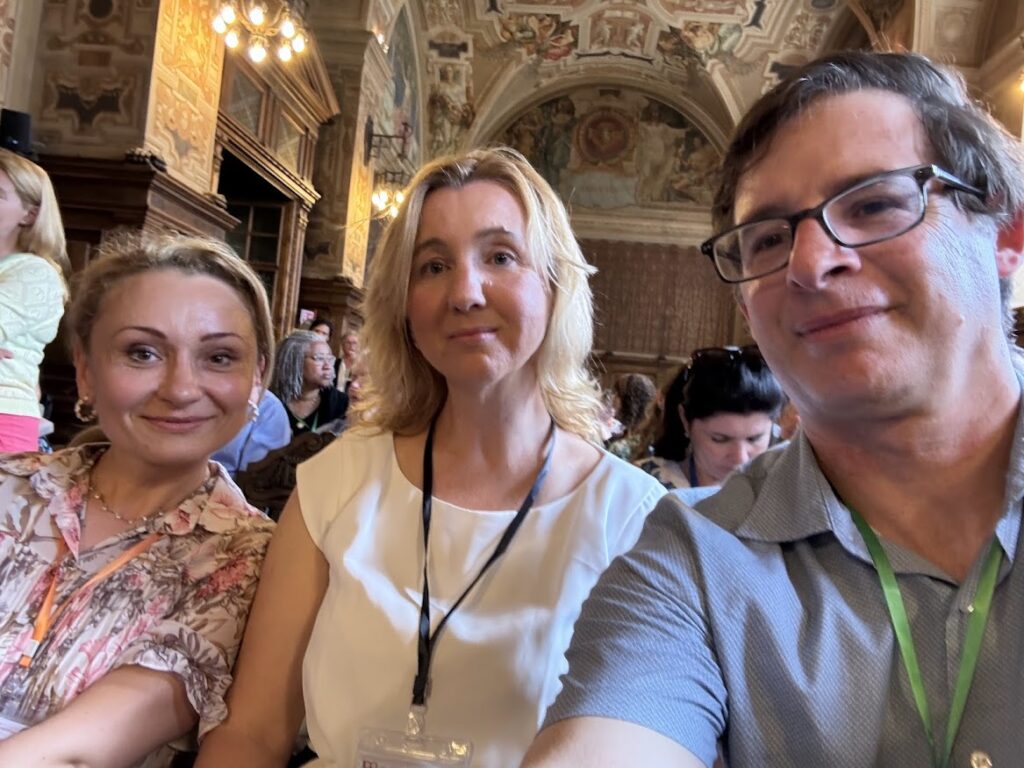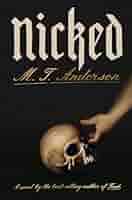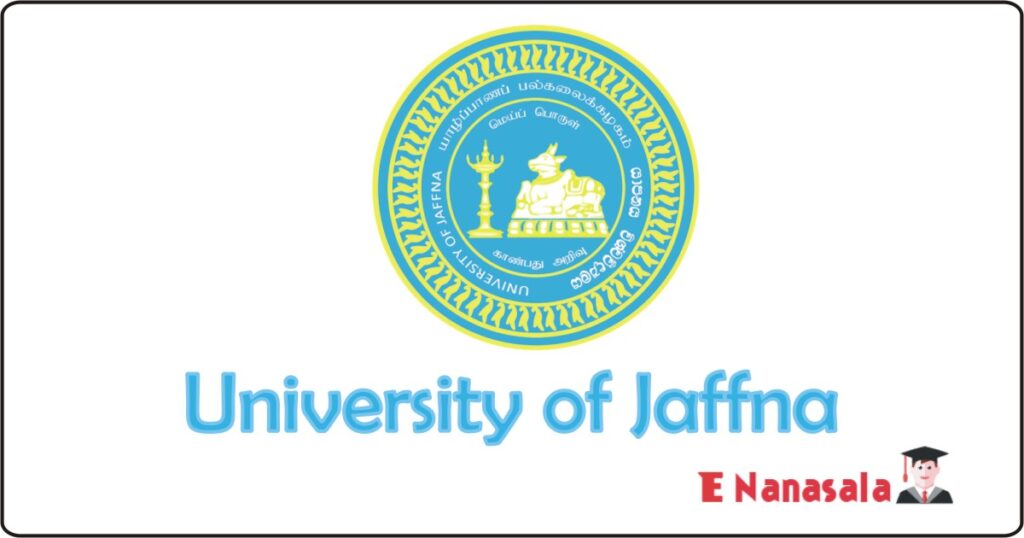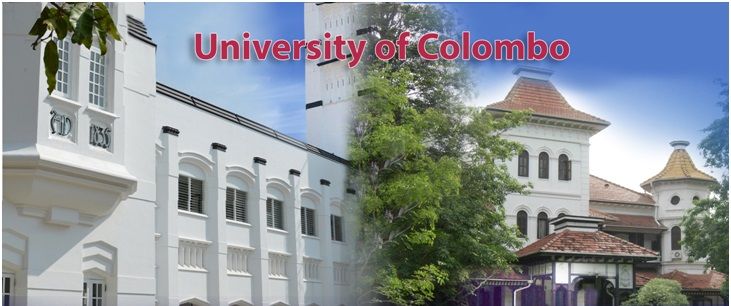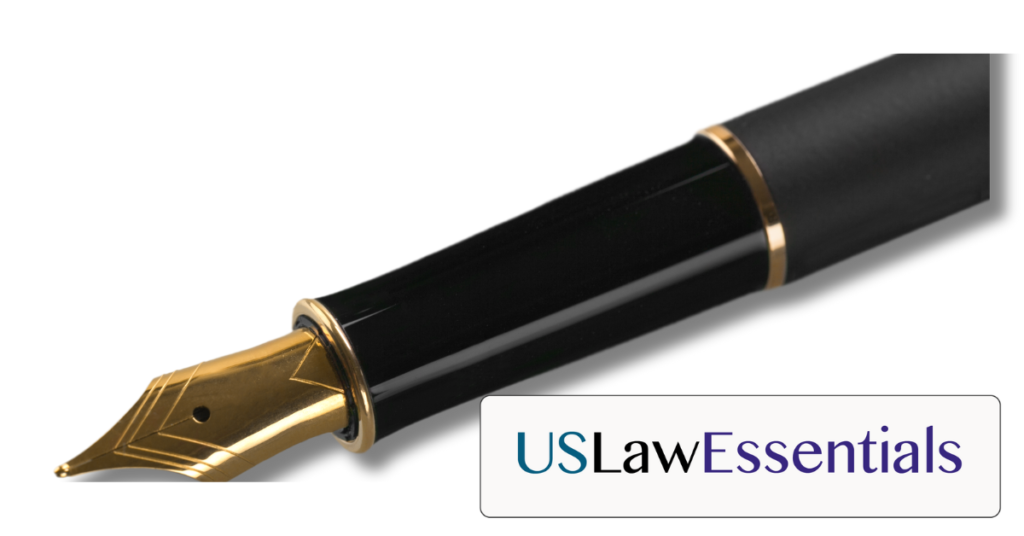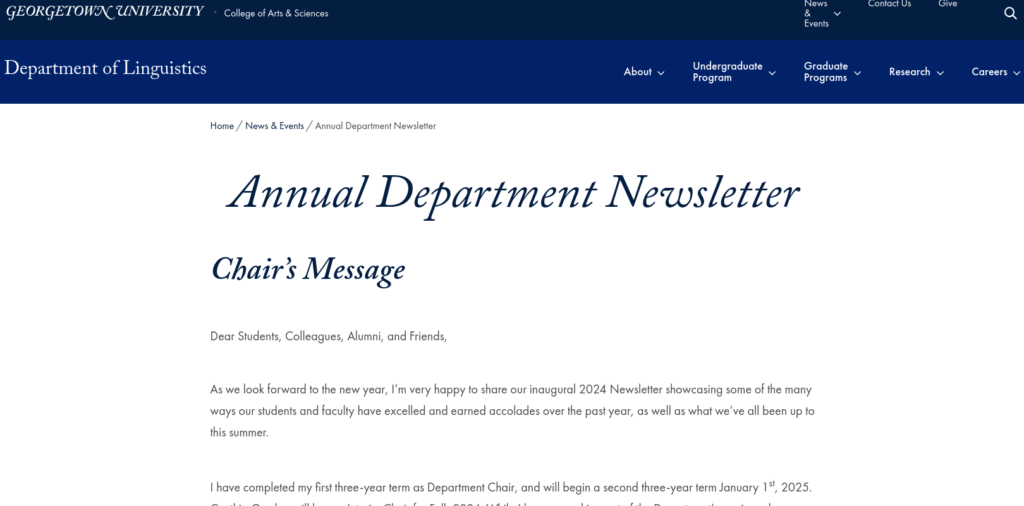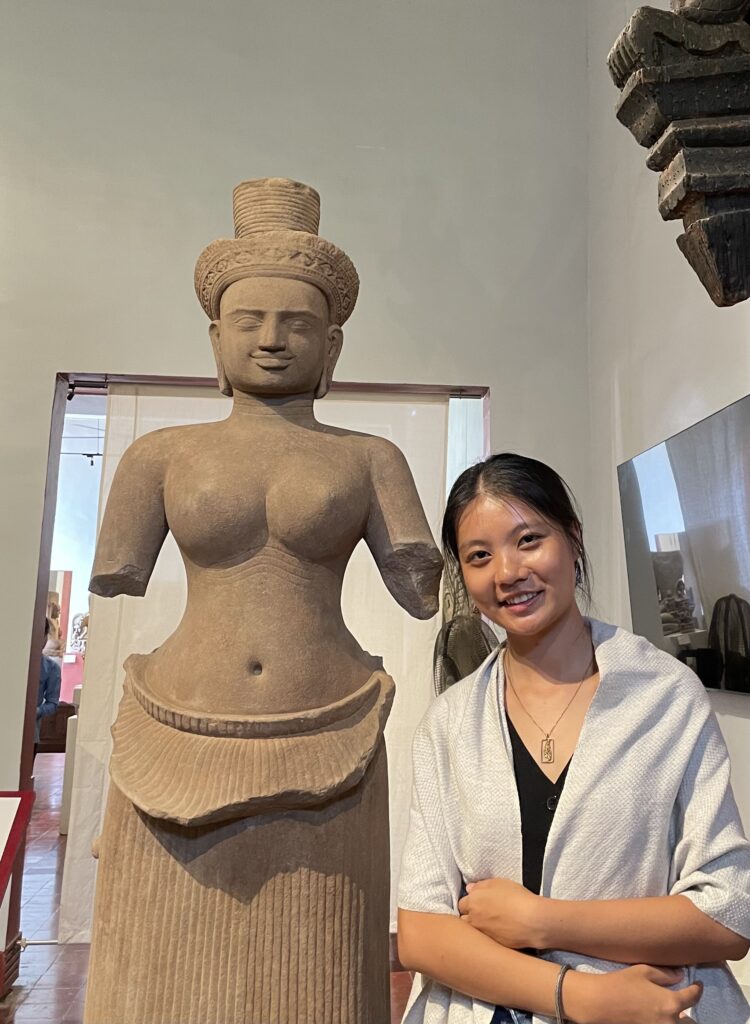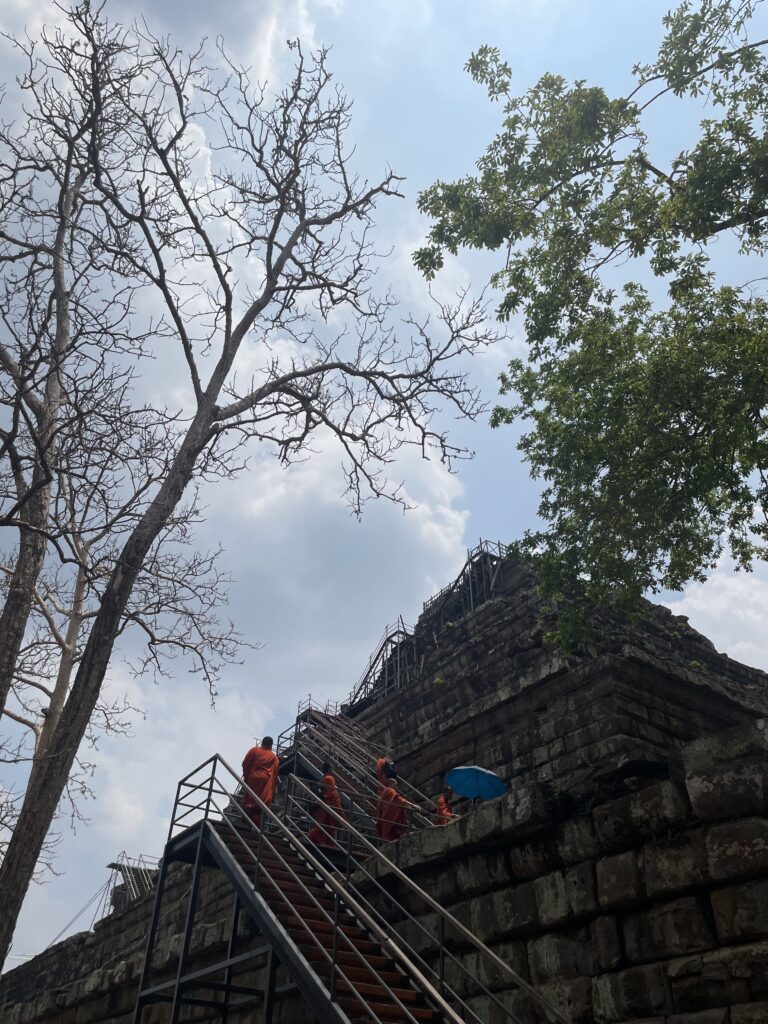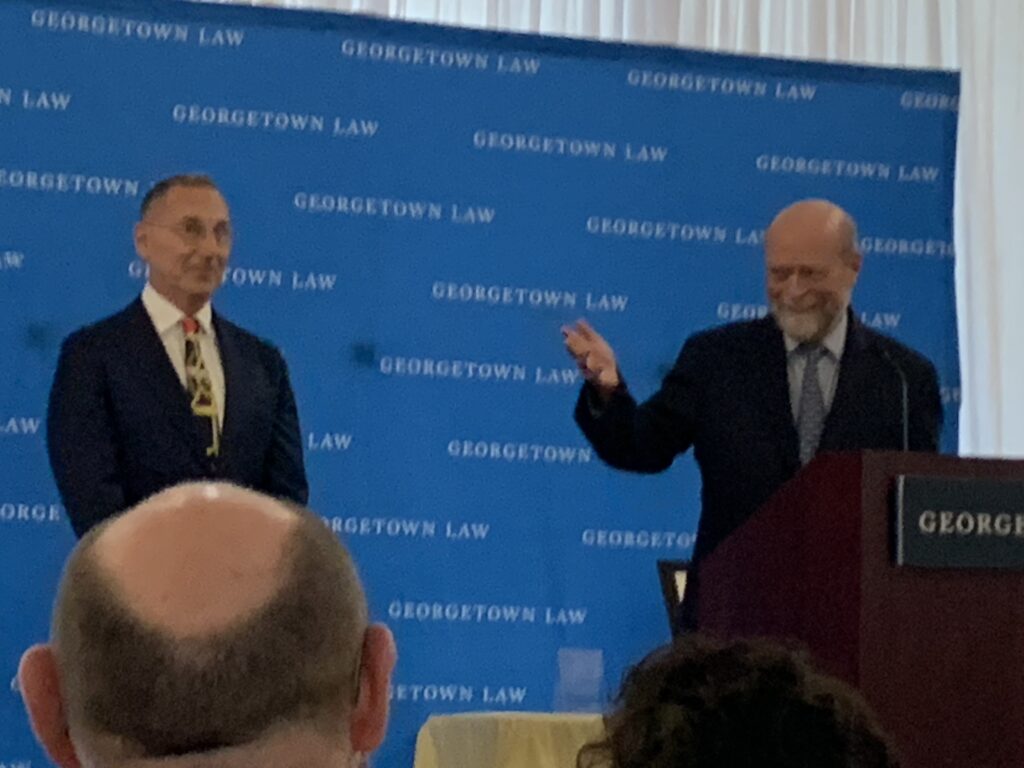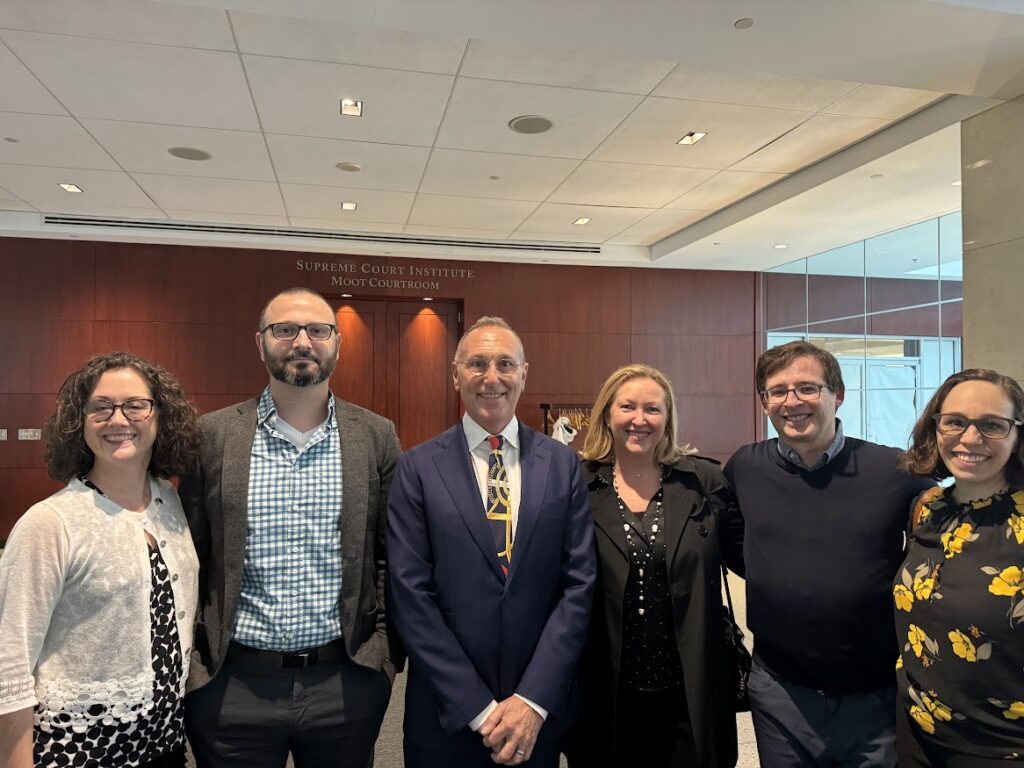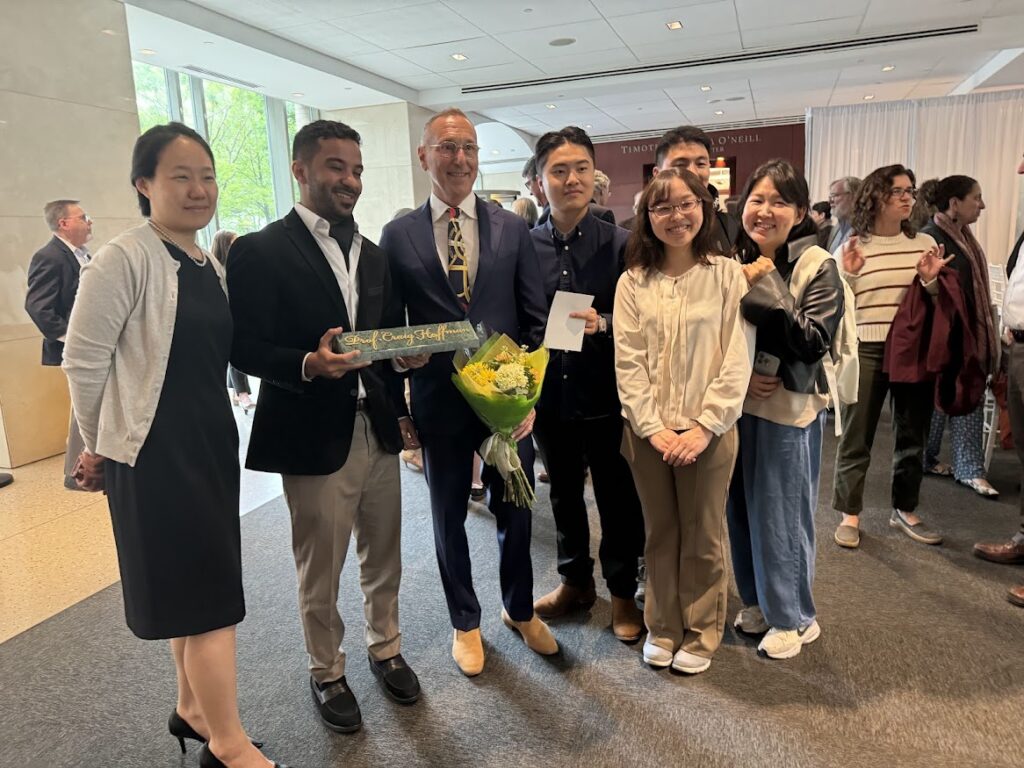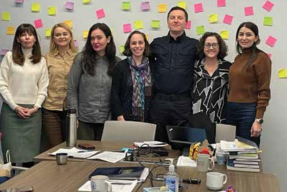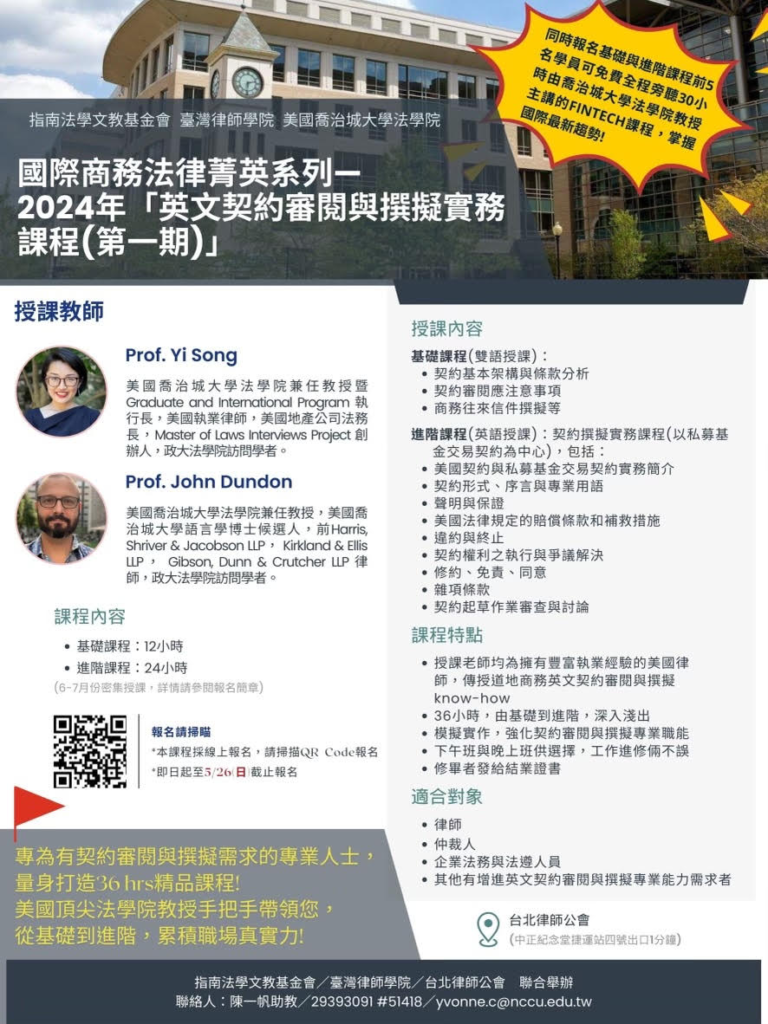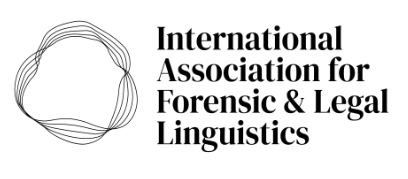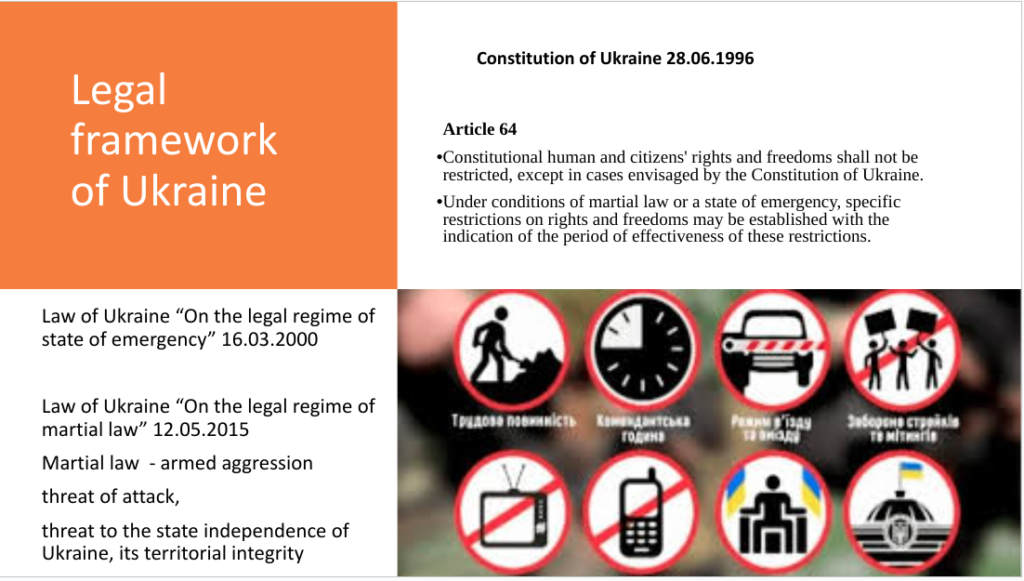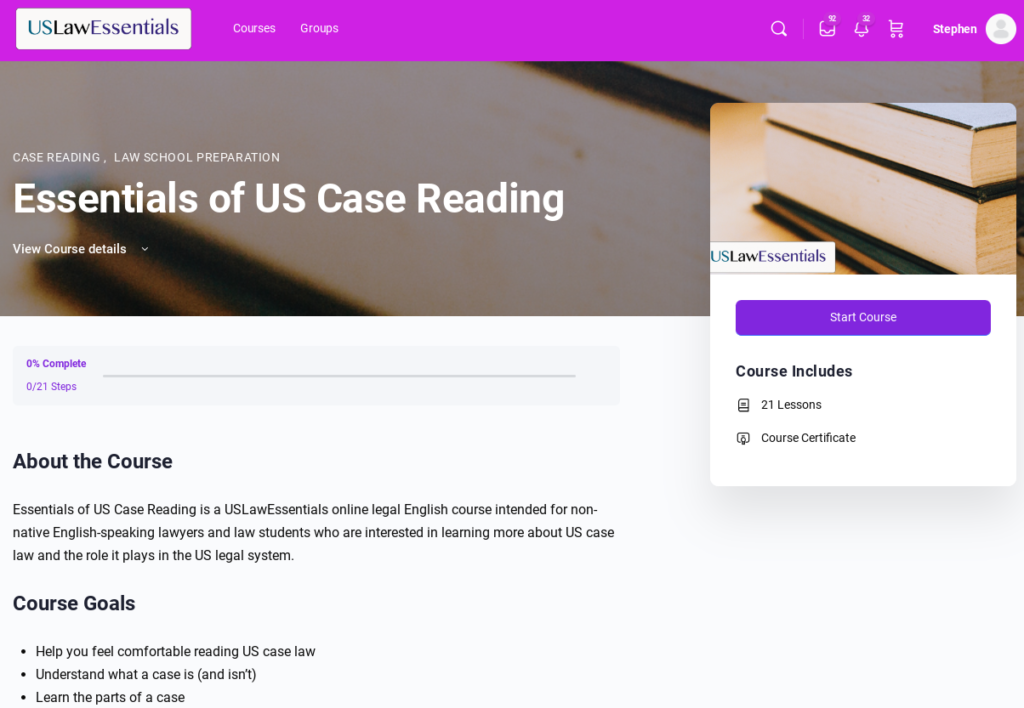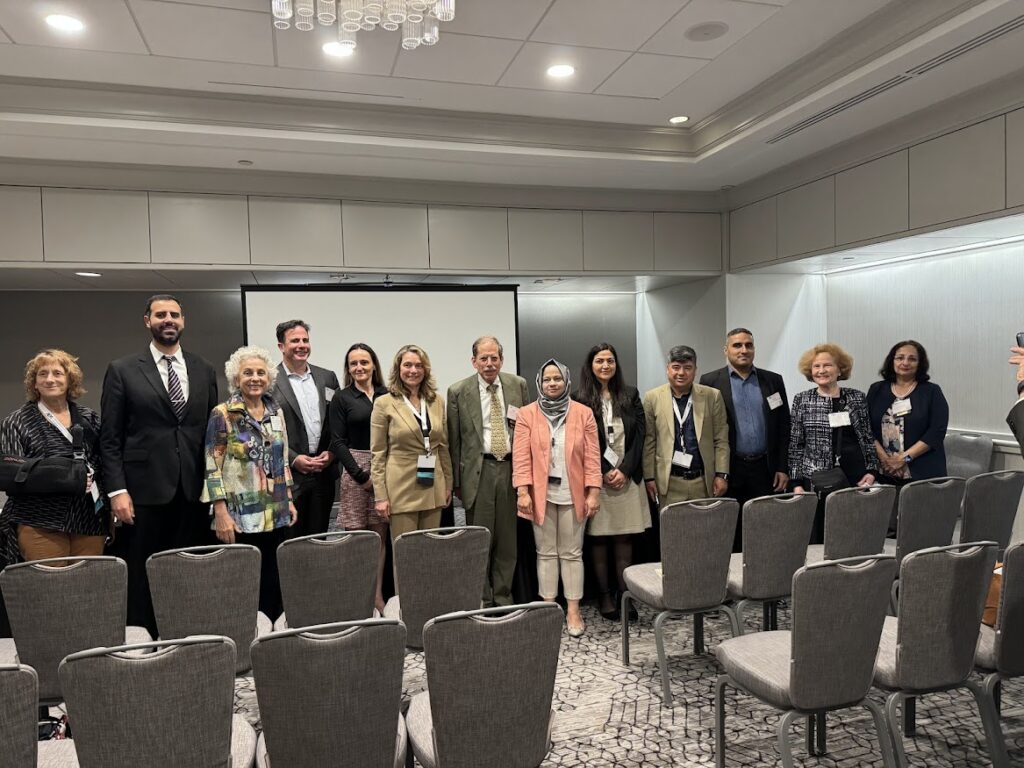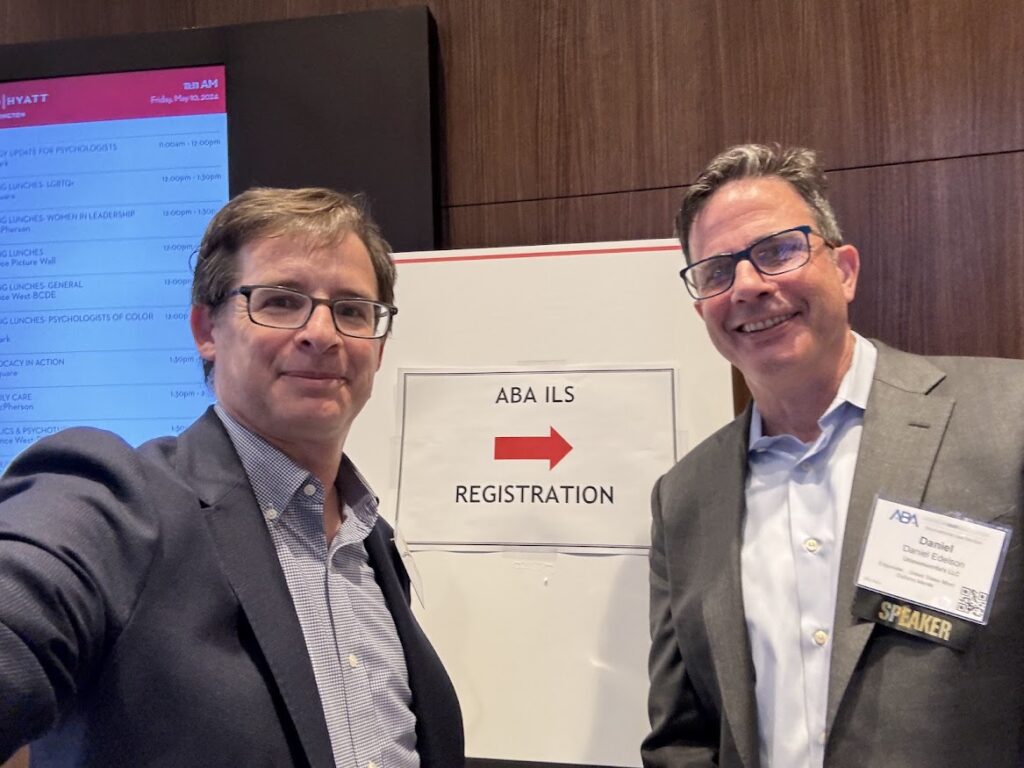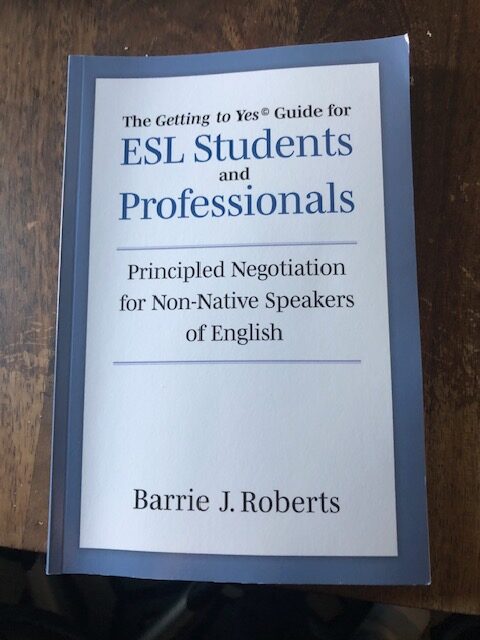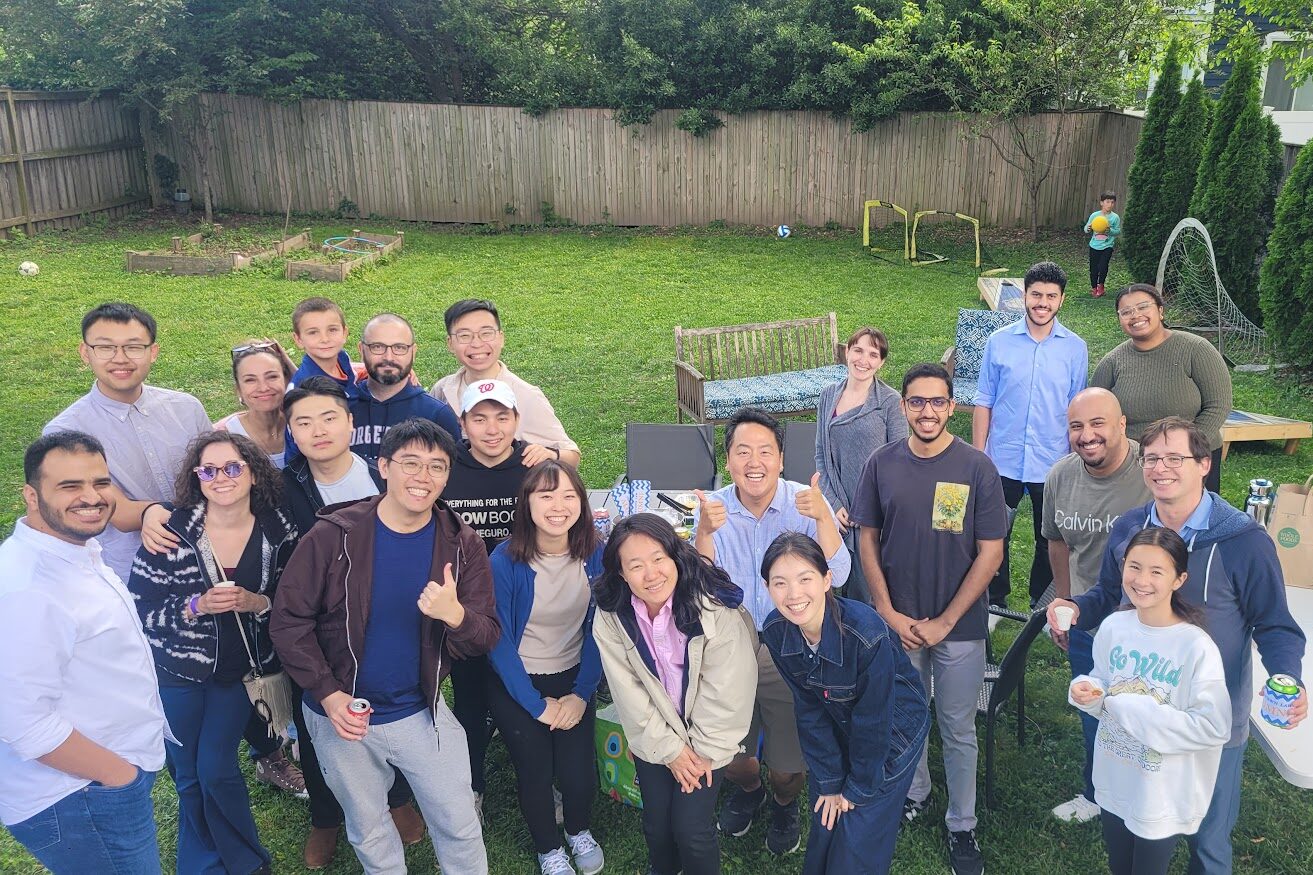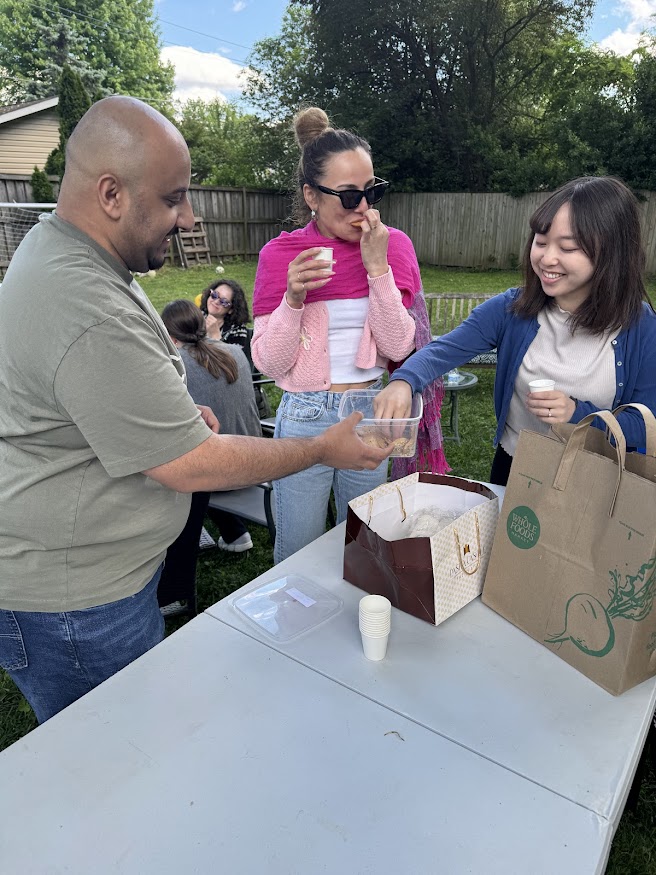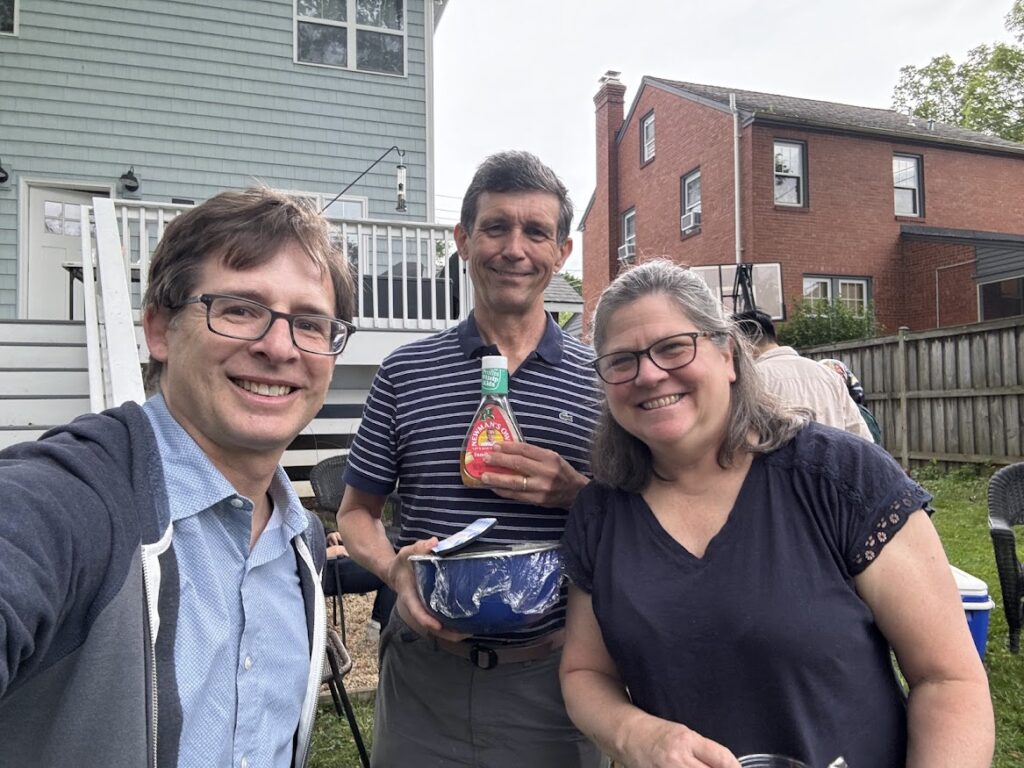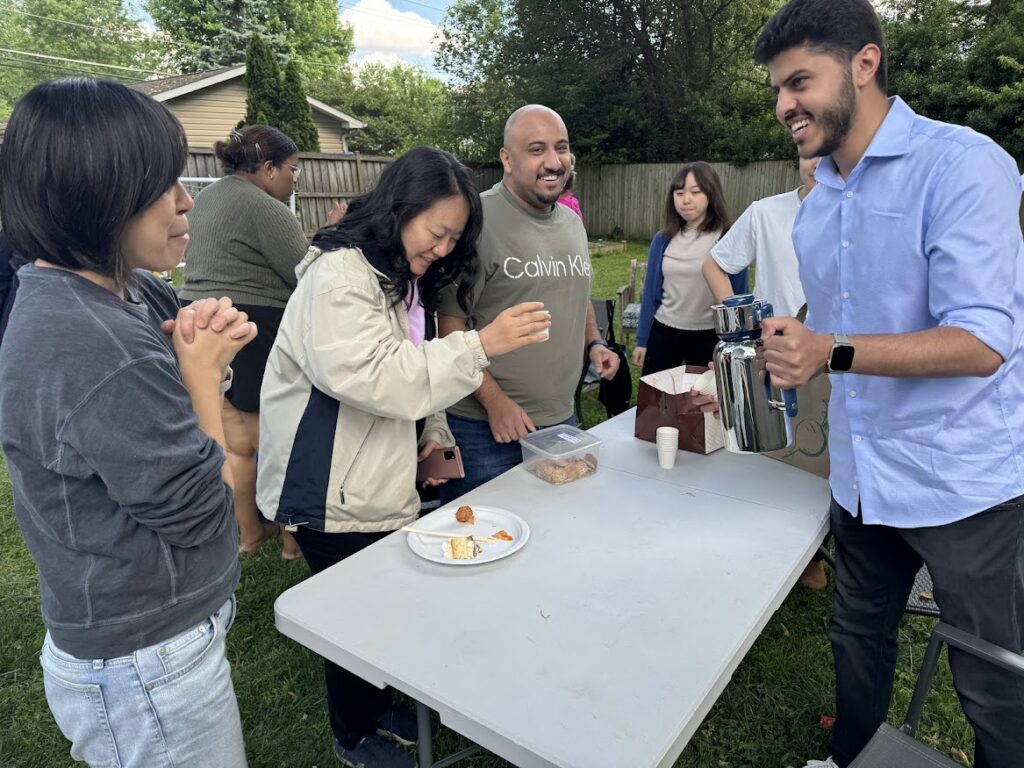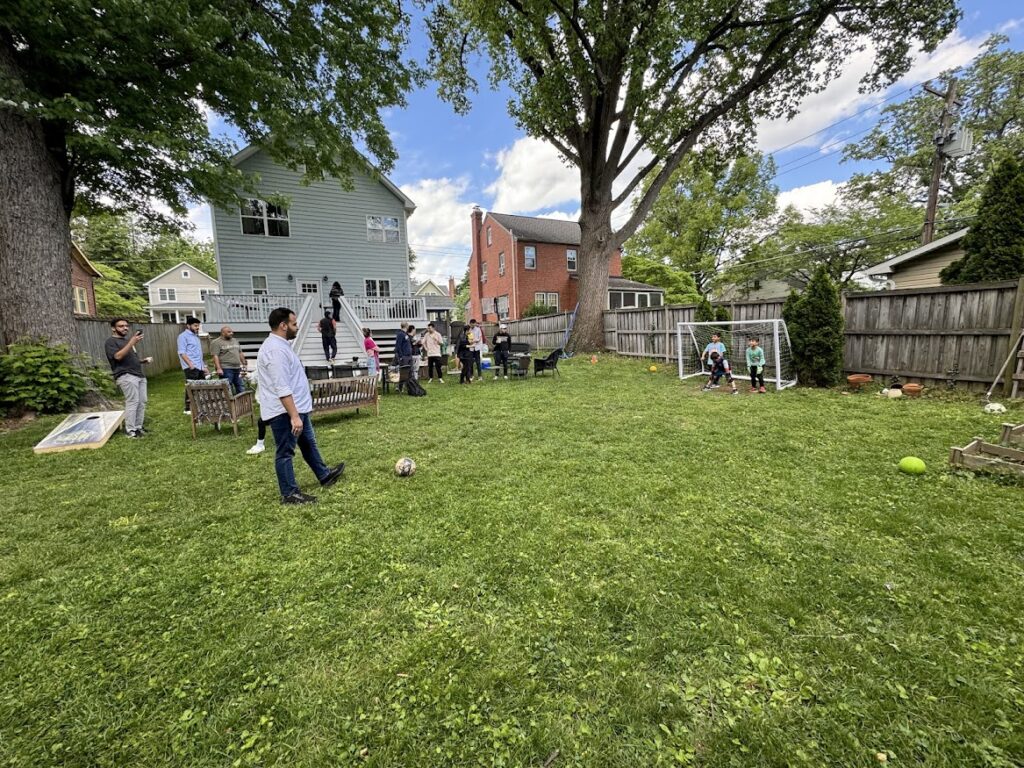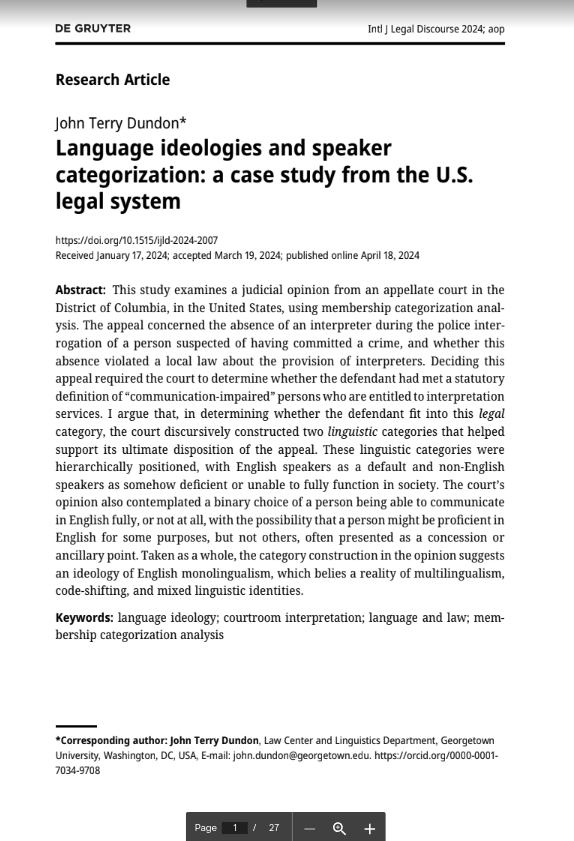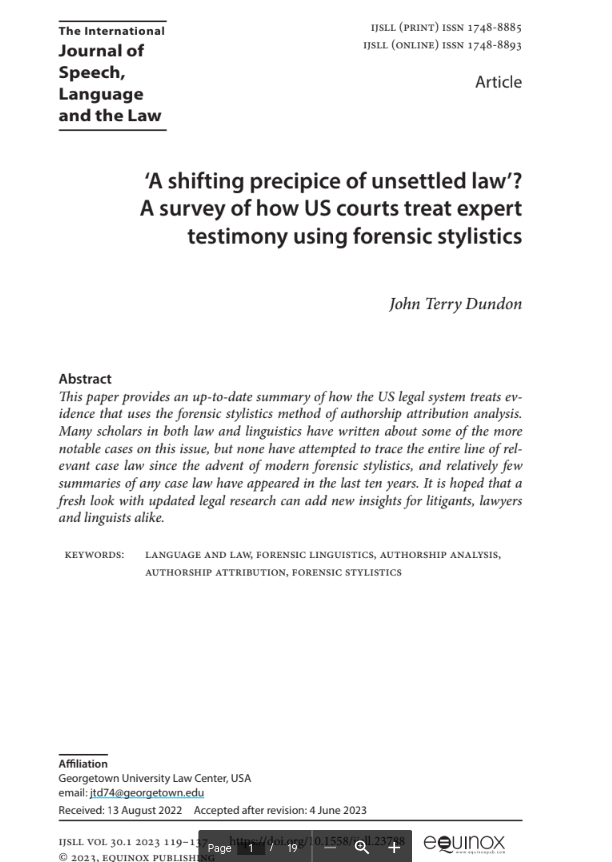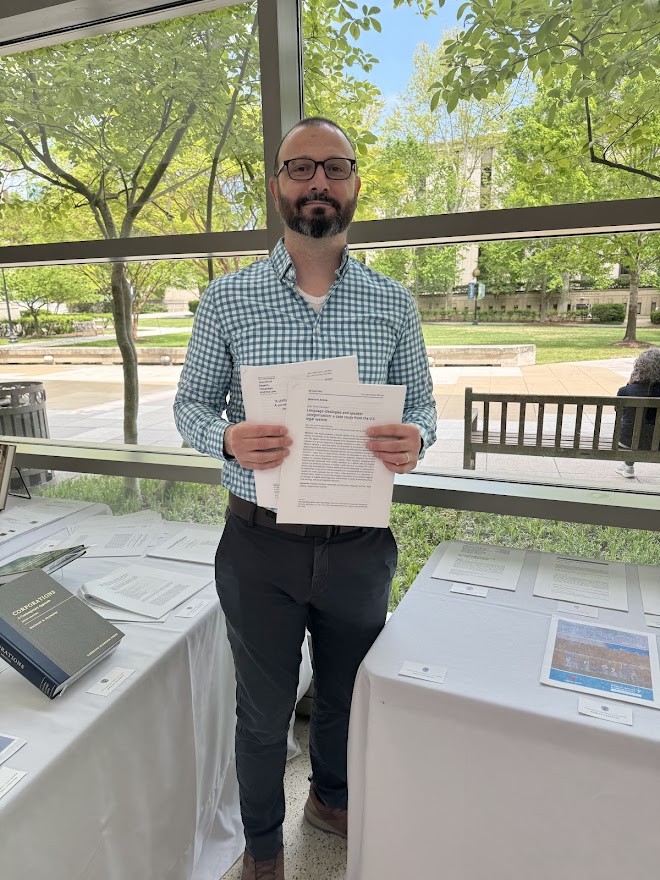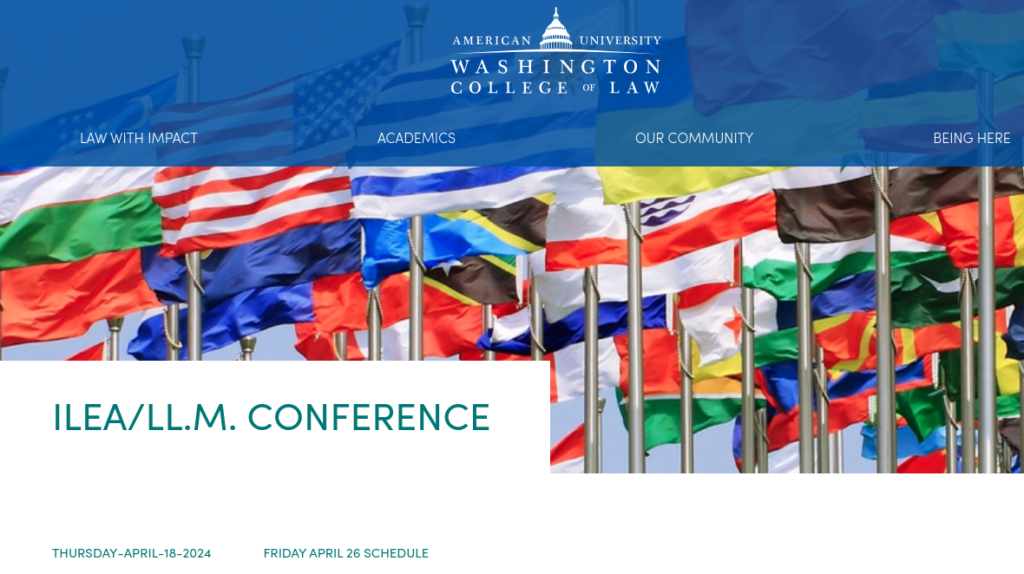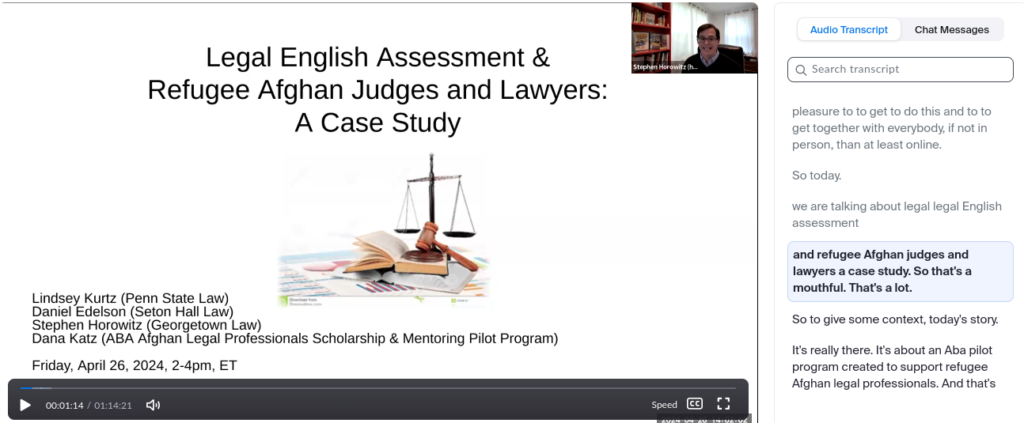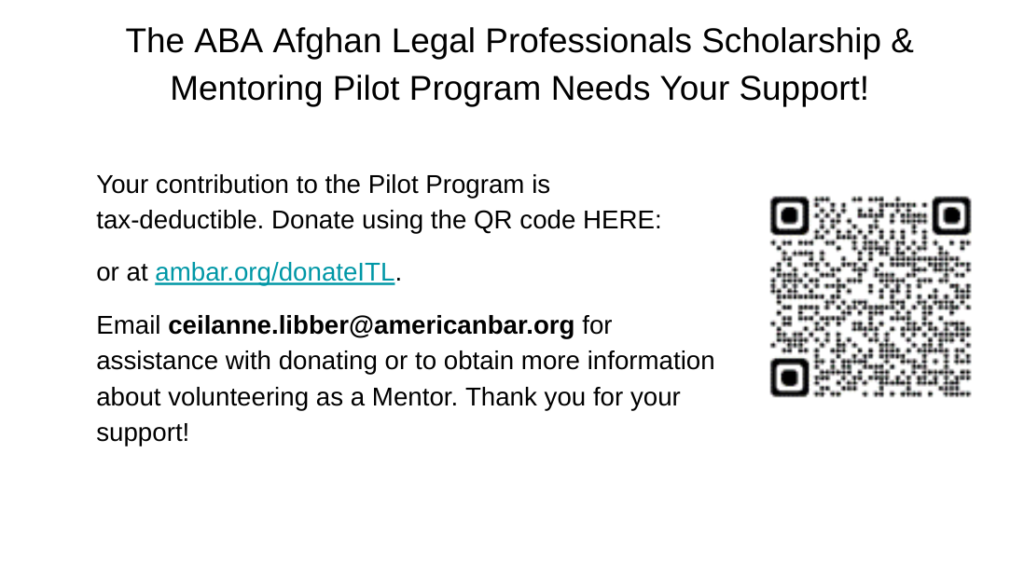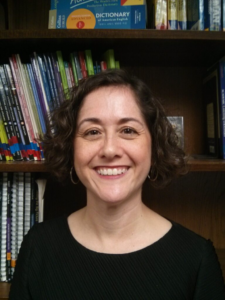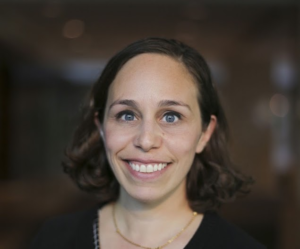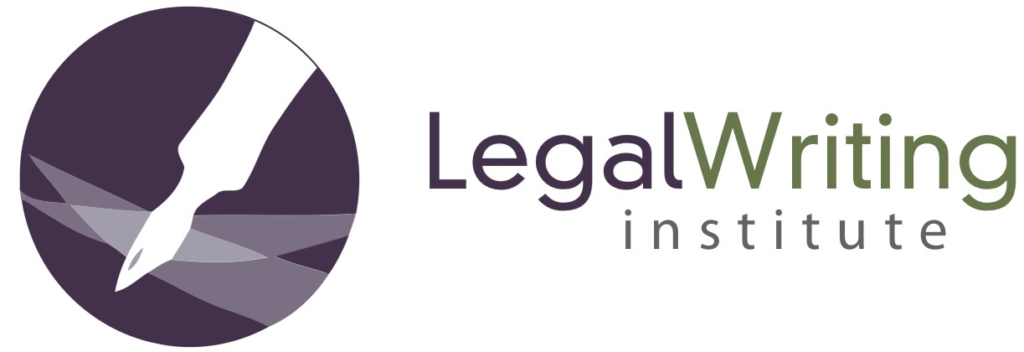Post by Stephen Horowitz, Lecturer of Legal English
Here’s what the Georgetown Legal English faculty have been up to since the end of summer 2024. (Click here to see previous Updates from the Legal English Faculty.)
****************
Heather Weger & Julie Lake

The end of the semester is upon us! This fall, we were thrilled to welcome a stellar group of students to the Two-Year LLM Program.
Fall Projects
Reinvigorated from presenting at the Legal Writing Institute (LWI) Biennial Conference in Indianapolis in July, we split our curricular energy in the reiterative cycle of refining our Fundamentals of Legal Writing course (a course that helps multilingual legal writers develop an authoritative voice for the genre of legal memo writing) and designing a new course, Academic Legal English I (a course that provides multilingual law students with opportunities to develop speaking and networking skills useful for navigating law school and the legal profession).

Beyond the classroom, we continued making progress with many other professional projects, including a monthly working group with Ukrainian linguists teaching in the law context, planning a writing retreat for colleagues at the National University of Kyiv-Mohyla Academy in AY 2025-2026, and drafting a book proposal on writing instruction for multilingual law students.
Spring Projects
We look forward to the spring semester with the Two-Year LL.M. program! We will be offering Fundamentals of Legal Writing II (a course that focuses on the scholarly writing genre), and Academic Legal English II (a course that engages students in experiential learning to enhance their oral communication skills, grammar skills, and professional language skills).
We also look forward to presenting at the TESOL International Convention and Expo in March 2025 in Long Beach, CA. We will be presenting theories and practices that will appear in our upcoming book.
Winter Break
We each plan to spend the holiday season with friends and loved ones. Professor Lake will travel to the Boston area, and Professor Weger will stay in Virginia. We wish you a healthy and restful winter break!
Ben Cheng

Prof. Cheng taught both Legal English I and Professional Responsibility during the fall. He is looking forward to teaching Legal English II as well as a new Negotiations course for LLM students for which he consulted with Barrie Roberts, founder of Mediation as a Second Language and author of The “Getting to Yes” Guide for ESL Students and Professionals.
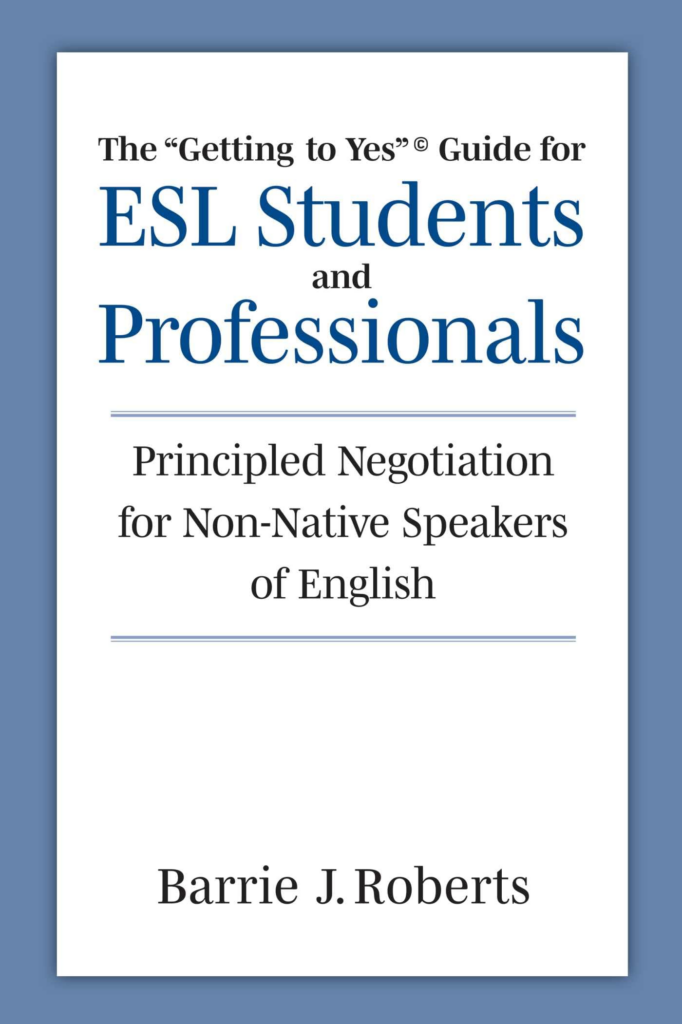
John Dundon
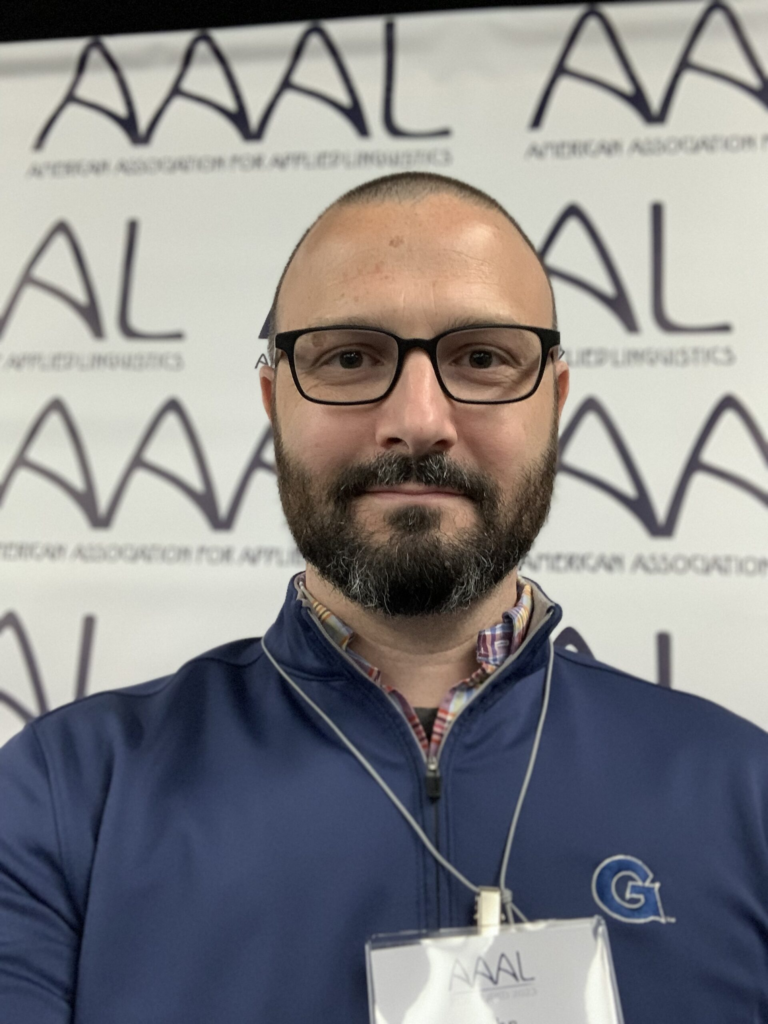
Professor Dundon taught two very different, but closely related, courses this semester. The first was a section of U.S. Legal, Research, Analysis & Writing in the Two-Year LL.M. Program, a course which introduces our multilingual law students to the three very different tasks of performing U.S. legal research, creating legal arguments based on case law, and presenting this research and analysis in a polished legal memorandum that meets the expectations of a U.S. legal audience.
Professor Dundon also taught Introduction to the U.S. Legal System, a large survey class that included all students from the Two-Year LL.M. Program, as well as foreign-trained students in Georgetown Law’s general LL.M. program who wish to qualify for the New York bar exam. This class was designed to answer the broad and somewhat esoteric question of “How does the U.S. legal system work?” Rather than focusing on any particular area of substantive law, this class touched on the structure of the U.S. government and the limits of federal power, the tools that courts use to interpret statutes and prior case law, and the ways in which federal and state courts often must interpret the law of other jurisdictions (i.e., federal courts interpreting state law, and vice versa), among other topics.
As different as these courses may appear at first glance, they were intimately connected. Understanding how U.S. courts do their job is a necessary precondition to understanding the relative weight of sources of U.S. law and how these sources are used to make legal arguments. And understanding how U.S. lawyers craft their legal arguments, in turn, helps students anticipate what to look for when reading all of the cases that they have been assigned for homework in their various classes.
When he wasn’t teaching (or being a dad) this semester, Professor Dundon also completed and defended his dissertation proposal in furtherance of his doctoral studies in Georgetown’s Linguistics Department. The working title of Professor Dundon’s dissertation is Intertextuality and Metadiscourse in U.S. Supreme Court Oral Arguments, and his study will investigate how sources of law are linguistically positioned as having formal authority in oral arguments at the Supreme Court. Among his dissertation committee members is Professor Marta Baffy of the University of Baltimore School of Law, a former faculty director in the Two-Year LL.M. Program at Georgetown Law.

Finally, Professor Dundon had a research article published this fall in the Journal of Pragmatics: “I think Gray is just against you there”: Intertextuality and personification in legal discourse. This study explores how parties in Supreme Court oral arguments (both attorneys and Justices) tend to personify the names of prior cases and animate them with human traits such as emotions and the power of speech. In the article, Professor Dundon posits that this personification is an information-management tool occurring in sequences of oral arguments that are particularly dense with references to case law. This is a strand of research that he hopes to revisit, in part, in his dissertation.

Stephen Horowitz

Georgetown Law
*Finished teaching Legal English I to the Two-Year LLM Program students, for what looks like it may be the final time. The course focused on a line of torts cases on the topic of negligence and helped students understand how to read and think about common law cases in the US legal system, and also how to organize an outline, think about hypotheticals, and write exam answers using an IRAC approach that connects discourse to writing moves, and writing moves to the language and grammar needed to execute those writing moves.
*Taught a section of US Legal Research & Writing for the LLM students in the Two-Year LLM Program. In addition to teaching the process of legal research, focused in particular on the discourse, writing moves, and language needed to execute the writing moves and discourse of legal memorandum writing.
Ukraine

*In November, began serving as a Visiting Professor of Legal English at the Kyiv-Mohyla Law School for the purpose of providing faculty training and curriculum development support. (Special thanks to Justice For All Ukraine’s Artem Shaipov for facilitating the relationship!)
*Initiated and helped organize a November 25, 2024 joint event on the law school campus titled, “Insider Perspectives on Atrocity Crimes Accountability in Ukraine,” hosted by Georgetown Law’s International Criminal Justice Initiative and by Truth Hounds, an independent Ukrainian organization focused in investigating war crime atrocities committed by Russia against Ukraine. The panel featured ICJI’s Christopher “Kip” Hale, who has been advising Ukraine’s Prosecutor General on the investigation and prosecution of war atrocities, and Volodymyr Hryshko, Legal Counsel for Truth Hounds, and Vladaslav Chyryk, Investigator for Truth Hounds, and was moderated by Professor Alan Blakley, Visiting Professor, Kyiv Mohyla Academy, Faculty of Law.

*Expanded weekly Legal English Conversation Zoom sessions from Ukrainian law faculty to Ukrainian law students. Recruited over 300 Ukrainian law students and over 100 US law students (and a few French law students) to participate. Approximately 40 of the US law students volunteered to host weekly Legal English Conversation Zoom sessions for the Ukrainian law students modeled on how I facilitate the sessions with Ukrainian law and legal English faculty. (Here’s a post on the Georgetown Legal English Blog with more information about this initiative, plus sign-up links for anyone else who would like to volunteer.)
*Helped law faculty from State Tax National University and Oles Gonchar Dnipro National University identify and connect with US law faculty for the purpose of providing lectures to the Ukrainian law schools on the topics of Rule of Law, Cybersecurity, Criminal Law, Search & Seizure Law, Election Law, Democracy, Legislation Process, System of Checks & Balances, Artificial Intelligence Regulations, Anti-Corruption Regulations and Political Corruption Regulations, among others.
Sri Lanka
*Over the winter break, visited Sri Lanka to lead Training of Trainer (TOT) workshops on legal English curriculum development for the University of Colombo and University of Jaffna in connection with USAID’s Efficient and Effective Justice (EEJ) Program in Sri Lanka. Similar to Ukraine, in Sri Lanka law schools are in the process of moving towards English-language-only curriculum.

Afghanistan
*In December, continued conducting assessments for former Afghan judges and lawyers in connection with the ABA Afghan Legal Professionals Scholarship & Mentoring Pilot Program. The assessment project is in collaboration with Prof. Daniel Edelson (Seton Hall/USLawEssentials.com) and Prof. Lindsey Kurtz (Penn State Law).
*Also, with Daniel Edelson and USLawEssentials, continued offering a free self-guided online Pre-LLM legal English program (i.e., Fundamentals of the US Legal System + Reading Cases + Legal Writing + Legal Listening) to help Afghan candidates prepare to start an LLM program at a US law school.
Japan
*In October/November, guest-lectured in three classes for the legal English course at Keio University Law School on the topics of Case Reading Strategies and the Language of Analogy.
Interestingly, the course came into existence at Keio thanks to a change in the date of the Japanese bar exam, which meant that students still have an additional semester of classes after they’ve completed the bar exam. As a result, there’s increased demand for Legal English among the students since they recognize the need for English and know that once they graduate and begin their legal training work, they will not have much time to study English. Special thanks to Profs. Masako Miyatake and Mindy Allen for the invite!
Assessment
*Thanks to a post on the Consortium on Graduate Communications (CGC) listserv, ended up piloting a new language assessment with a small cohort of Georgetown LLM students in collaboration with Sotiria Koui, founder of ELT Matters and creator of ALIGN Plus, “An online English language placement test for the academic needs of graduate students.”

Looking ahead to 2025….
*In the Spring 2025 semester, will be teaching Professional Responsibility for a section of LLM students, and Legal English II for the Two-Year LLM Program students. Legal English II will use as its primary materials a line of Criminal Procedure cases related to Miranda rights and help deepen their case reading and analysis skills.

*On January 15, 2025, will be the External Speaker for the European Legal English Teachers’ Association (EULETA) external speaker series event titled, “Legal English in US Law Schools: Meeting the needs of international LLM students.” [Click here for more information and to register for this event.]
*In June, 2025 will teach the Legal Writing course for the Southwestern Institute for International and Comparative Law’s annual Academy for international lawyers. This will be the 60th year of its Academy.

*Will start to develop new Online Legal English (OLE) courses to be made available to Georgetown Law students as well as to learners outside of Georgetown.
*Working on developing a Rule of Law legal English course, thanks to support and materials from University of Arkansas Law Professor Christopher Kelley.

